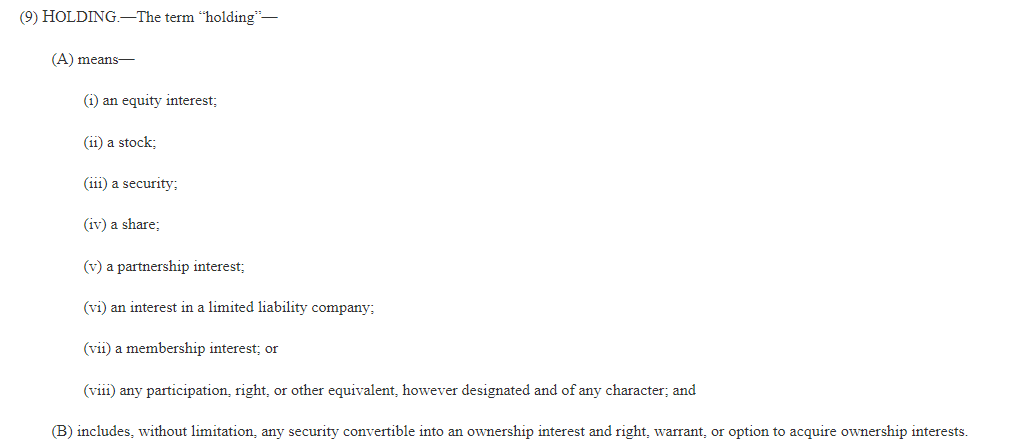One thing they spend a lot of time teaching in Law School is how to read statutes, because they are written with a certain language that can be hard to understand if your job isn’t interpreting or enforcing the law. So when I saw the claim that:
“It gives the government the ability to go after anyone they deem as a national security risk at which point they can access everything from their computer to video games to their ring light.”
…paired with snapshots from the statute that seemed out of context, I wanted to take a closer look, especially since that claim didn’t seem to match the reporting I’d seen.
The bill has a few main parts that would at first seem to be of concern to American citizens:
- Definitions
- SEC. 3. ADDRESSING INFORMATION AND COMMUNICATION TECHNOLOGY PRODUCTS AND SERVICES THAT POSE UNDUE OR UNACCEPTABLE RISK.
- SEC. 4. ADDRESSING INFORMATION AND COMMUNICATIONS TECHNOLOGY PRODUCTS AND SERVICES HOLDINGS THAT POSE UNDUE OR UNACCEPTABLE RISK.
- SEC. 5. CONSIDERATIONS.
The definitions section is ABSOLUTELY ESSENTIAL to understanding the rest of a bill.
Through the rest of the bill, the following powers would be established. I’m going to highlight the essential terms.
3(a) In General. —The Secretary, in consultation with the relevant executive department and agency heads, is authorized to and shall take action to identify, deter, disrupt, prevent, prohibit, investigate, or otherwise mitigate, including by negotiating, entering into, or imposing, and enforcing any mitigation measure to address any risk arising from any covered transaction by any person, or with respect to any property, subject to the jurisdiction of the United States that the Secretary determines—
4(a) In General. —The Secretary shall identify and refer to the President any covered holding that the Secretary determines, in consultation with the relevant executive department and agency heads, poses an undue or unacceptable risk to the national security of the United States or the security and safety of United States persons.
These are the clauses mentioned in the tweet thread and said to apply to anyone deemed a security risk. Instead, the bill says that these actions can apply to any covered transaction in Sec. 4 and any covered holding in Sec. 5. The definitions help here. A holding refers to a specifically economic interest.
Then we can look at which holdings the bill means by using those specific terms.
This means that Sec. 4 applies to transactions where a (i) foreign adversary, (ii) entity subject to a foreign adversary, or (iii) entity owned, directed, or controlled by persons relating to those foreign adversaries, has an interest in the transaction. Not just anyone.
This means Sec. 5 applies to economic interests such as companies and shares of companies which are held or controlled by a (i) foreign adversary, (ii) entity subject to a foreign adversary, or (iii) entity owned, directed, or controlled by persons relating to those foreign adversaries. Not just anyone.
Hopefully that can be at least a bit of reassurance. I still think the bill gives the executive too much discretion to remove certain business from the market, but the bill as written does not read to me as expanding domestic surveillance powers.


